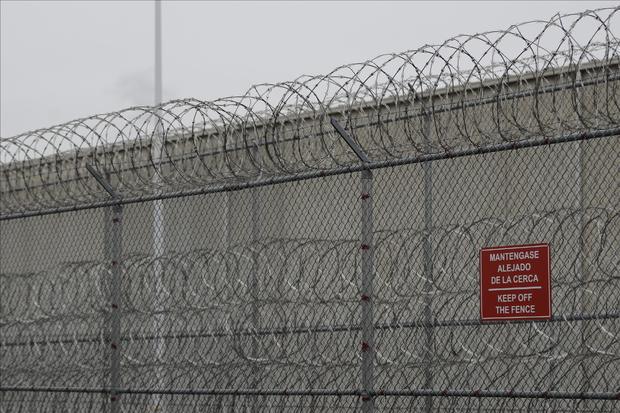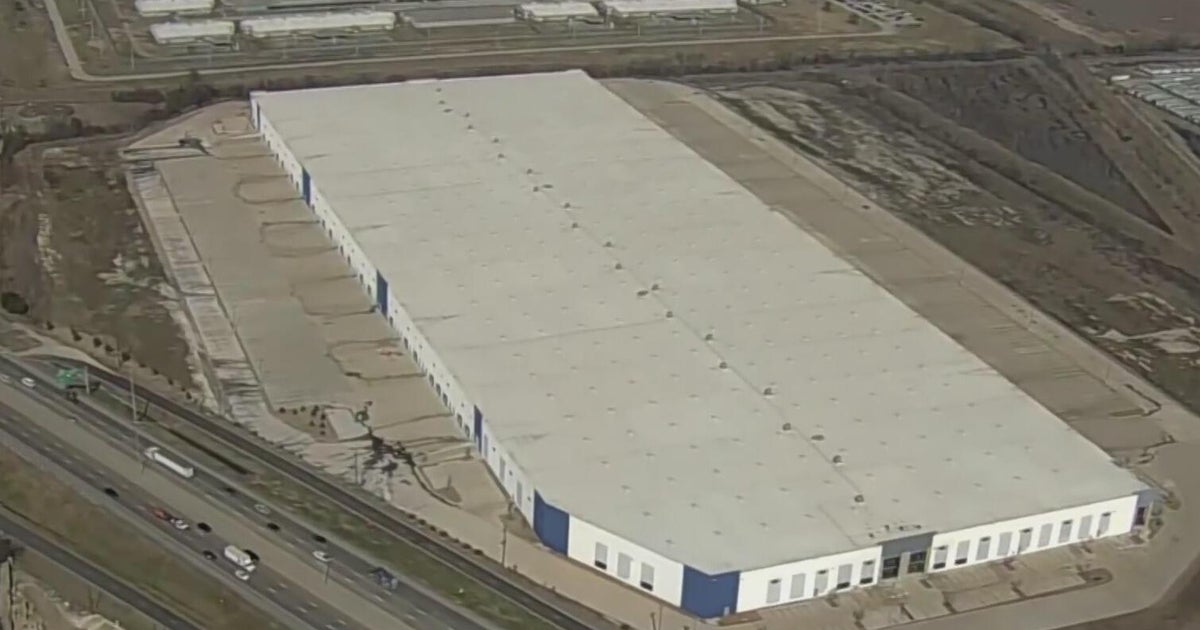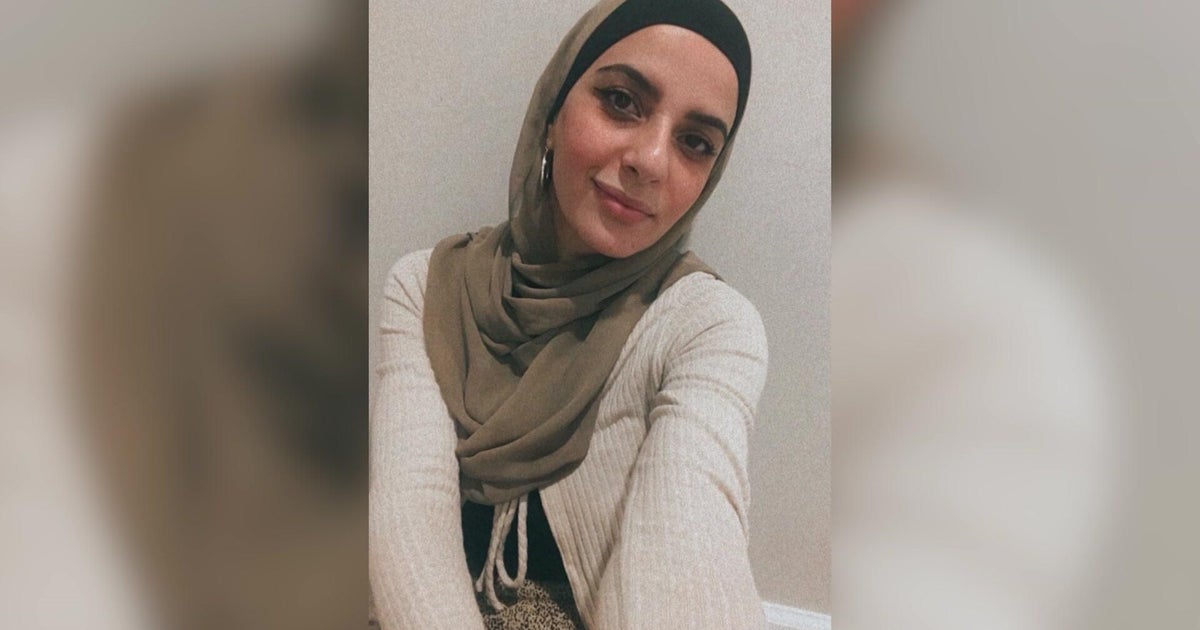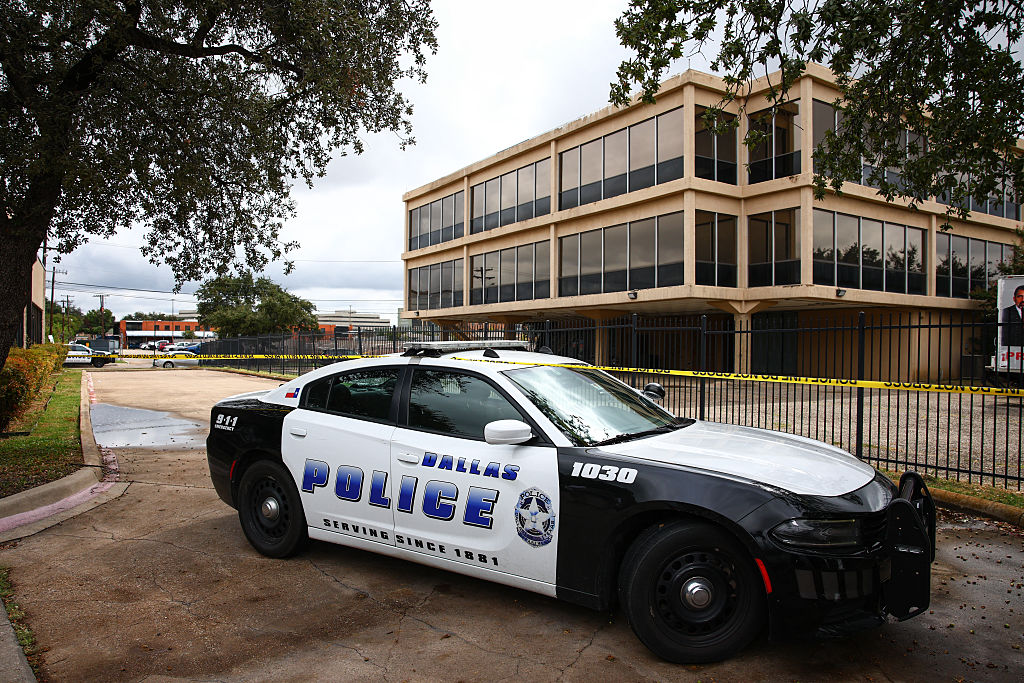Government medical advisers urge ICE to expand COVID-19 vaccinations for immigrant detainees
Two medical advisers for the Department of Homeland Security (DHS) implored the U.S. government on Wednesday to expand COVID-19 vaccination access and other mitigation measures at immigration detention centers, where infections have surged by over 800% in 2022, according to a whistleblower disclosure obtained by CBS News.
In a letter to DHS Secretary Alejandro Mayorkas, Scott Allen and Josiah Rich, two doctors who inspect detention facilities on behalf of the department's civil rights office, denounced the government's "slow and inconsistent" efforts to control the spread of COVID-19 among immigrants detained by Immigration and Customs Enforcement (ICE), a division of DHS.
"In our own inspections of ICE facilities, for example, we have seen and documented inconsistent enforcement of mask use in detention centers, inconsistent testing and surveillance, and a failure to develop facility level infection control plans — all critical measures to control the spread of what we know is a highly transmissible, life-threatening illness," the medical consultants wrote.
Allen and Rich, who are represented as whistleblowers by the nonprofit Government Accountability Project, urged Mayorkas to ensure immigrants in ICE custody have access to booster shots, antiviral medication, monoclonal antibodies, N95 or KN95 face masks and counseling related to the efficacy of the vaccine.
"The failure to act with alacrity," the doctors wrote, "has contributed to the number of confirmed COVID cases skyrocketing since the emergence of the Omicron variant."
COVID-19 cases among immigrants in ICE detention have increased by 848% since the start of the year, government statistics show. On Wednesday, ICE was isolating or monitoring 2,702 detainees — or 12% of its detainee population — due to confirmed infections, compared to 285 active cases recorded on January 3.
The recent surge in infections is the largest system-wide coronavirus outbreak inside ICE's sprawling network of 200 for-profit prisons, county jails and detention centers, surpassing a previous record of active detainee cases in May 2021, according to an analysis of agency data by the Vera Institute of Justice.
The sharp increase in COVID-19 cases has alarmed public health experts and advocates for immigrants, who have called on ICE to improve its vaccination efforts, address a 37% vaccine refusal rate among detainees, release immigrants with underlying medical conditions and reduce facility transfers.
As of January 23, ICE was detaining 21,602 individuals, according to agency data.
ICE has repeatedly defended its pandemic response, noting the number of immigrants who have received COVID-19 vaccines in its custody has increased significantly since last summer, when the agency received its first federal allocation of doses for detainees.
The agency has also highlighted that it has released thousands of medically vulnerable immigrants because of a federal court case and its own policies. All ICE detainees are supposed to undergo coronavirus testing at intake.
But Allen and Rich said they have "observed a failure" on ICE's part "to take full advantage" of vaccines for detainees, noting the agency has relied on the single-dose Johnson & Johnson vaccine, which has been shown to provide waning protection against the Omicron variant without a booster.
"The threat of Omicron in a congregate setting with populations who are either unvaccinated or only vaccinated with a single dose of J&J vaccine poses an immediate threat to the lives of immigrants, staff and communities surrounding the detention centers," Allen and Rich wrote in their letter.
As of earlier this month, ICE had administered booster shots to fewer than 700 detainees, a number the agency said was low because many immigrants are released or deported before they become eligible for a booster.
But Allen and Rich noted that some immigrants stay in detention for months or longer. They also said ICE should offer boosters to immigrants who enter U.S. custody after being partially vaccinated.
While ICE's COVID-19 protocols instruct officials to offer vaccines to detainees within 14 days of taking them into custody, there's no mention of booster shots — an omission Allen and Rich called "inexplicable in light of available science, government public health recommendations, and their widespread availability."
ICE's detention system, which was plagued by reports of inadequate medical care and detainee mistreatment before the pandemic, has come under fire for its coronavirus response, including by DHS' inspector general, which documented lax enforcement of protocols designed to mitigate the spread of the virus.
The agency has publicly reported 36,000 coronavirus cases among immigrants in its custody since the spring of 2020, a figure that outside monitors believe is an undercount. According to ICE's tally, 11 detainees have died from coronavirus complications.
The Biden administration has scaled back ICE arrests, directing the agency to detain immigrants convicted of serious crimes, migrants who recently entered the U.S. illegally and noncitizens accused of posing a national security risk. It also stopped detaining immigrants at two ICE facilities plagued by reports of abuse.
In an interview with CBS News last week, Mayorkas said he plans to close additional ICE detention centers as part of an internal review of the system, calling detention reform "a priority of mine" for 2022.





